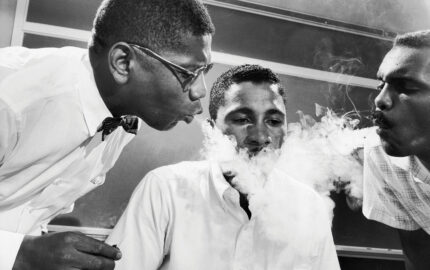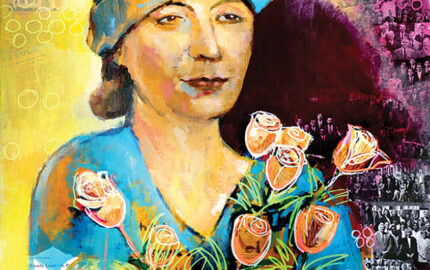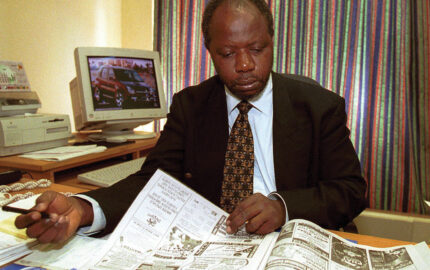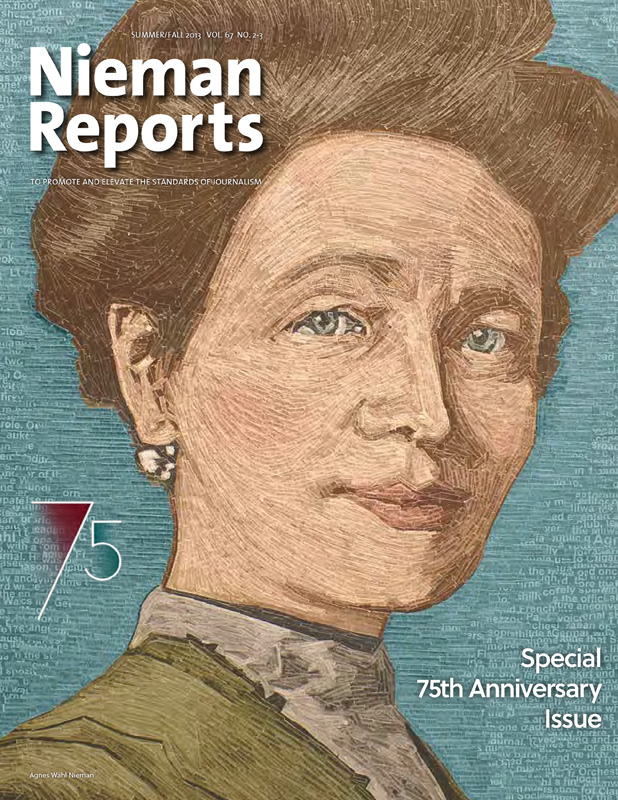
Marimow, in his second stint as editor of The Philadelphia Inquirer, received the Pulitzer Prize for Investigative Reporting in 1985 for his stories about the Philadelphia Police Department K-9 unit. After his exposé revealed that city police dogs had attacked more than 350 people, an investigation was ordered and more than a dozen officers were removed from the unit
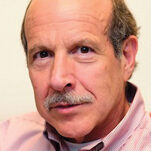
Seated in the last row of a cavernous lecture hall in the Pound Building, wearing my red and black lumber jacket and green corduroys, I listened intently as Anthony Lewis, NF ’57, New York Times columnist and Law School professor, spoke eloquently about the historic First Amendment case of New York Times Company v. Sullivan.
United States Supreme Court Justice William Brennan’s majority opinion, he told us, began with these words: “We are required in this case to determine …” “We are required.” The case before the court, Lewis explained to us, was so critically important to the foundation of a democracy that Brennan wanted to emphasize the court’s obligation to address the issues that underscored the core purpose of freedom of speech and the press in the United States. As Brennan wrote in his majority opinion, citizens have a responsibility in a democracy to carefully dissect the actions of their elected officials: “It is as much the duty of the citizen critic of government to criticize as it is for the public official to administer.”
Reading Brennan’s majestic opinion, buttressed by Lewis’s discussion of its historic backdrop (the fight for civil rights in the South, the antagonism of Southern law enforcement and courts for newspapers like The New York Times that tried to cover the movement with accuracy and fairness, and the Times’s precarious financial condition while the court battle raged), hammered home to me more strongly than ever why our work as journalists was at the epicenter of democratic government.
When I returned to action in the newsroom of The Philadelphia Inquirer in June 1983, I came back with a renewed commitment to aggressively covering public affairs in Philadelphia, Pennsylvania and the nation. Lewis’s class helped me pursue investigative work about government with grit, determination and resourcefulness. The first major investigative project I embarked on involved allegations that a small group of Philadelphia police K-9 officers were ordering their dogs to attack innocent and unarmed men and women, a series that led to major changes in the regulations governing the use of police dogs in the city.
Equally important, the class helped me exercise greater sensitivity, thoughtfulness and restraint when I was writing about people who were leading private lives and were not looking for the publicity afforded by the Inquirer’s big spotlight. Now, three decades later, as an editor, I am still applying the indelible lessons I learned seated in the last row of Tony Lewis’s lecture hall.
